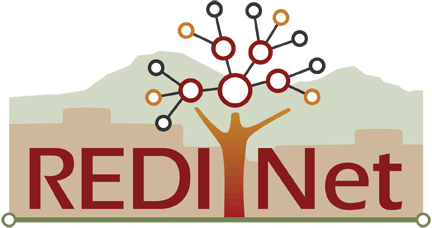NONDISCRIMINATION AND INTERCONNECTION
5.1 Open Access, Nondiscrimination and Interconnection
REDI Net operates on an open access, nondiscriminatory basis. REDI Net shall offer wholesale bandwidth to all qualified service providers within its network service area at affordable rates and, where practicable, below-market rates, to reduce barriers to entry, encourage competition, improve service, increase customer choice and reduce costs to the end user.
A. Open Access: REDI Net shall negotiate in good faith with all potential service providers, including public, private, non-profit and other parties, making a bona fide request for interconnection or wholesale services.
i. Service Level Agreement (SLA). REDI Net shall adopt a standard SLA to ensure competitively neutral terms for all service providers, including service availability level, service credits, and network maintenance and outages. Service provider specific SLA provisions are allowed in the case of Aggregated Internet Bandwidth and any negotiated terms shall be made available to current and future service providers. Subject to approval of a REDI Net Service Provider application, service providers may sign a Service Level Agreement (SLA) with REDI Net and interconnect with the network.
B. Nondiscrimination: REDI Net shall not favor any lawful Internet applications or content over others.
i. Content Filtering and Prioritization. REDI Net provides an environment of bandwidth abundance where infrastructure limitations do not impede upon the business or operational model. End user traffic on REDI Net shall be delivered on a best effort basis and shall not be given preference based on source or destination, application or content. Furthermore, bandwidth usage shall not be restricted by rate limiting or policing, and over-the-top applications shall not be filtered or blocked.
ii. Internet Policy Statement. REDI Net and its network operations partners shall implement, monitor, and enforce the principles set forth in the Federal Communications Commission (FCC) Internet Policy Statement (FCC 05-151, adopted August 5, 2005) or any subsequent ruling or statement:
Consumers are entitled to access the lawful Internet of their choice;
Consumers are entitled to run applications and services of their choice, subject to the needs of law enforcement;
Consumers are entitled to connect their choice of legal devices that do not harm the network; and
Consumers are entitled to competition among network providers, application and service providers, and content providers.
iii. Failure to Meet Obligations. Those who believe REDI Net has failed to meet its nondiscrimination obligations should first seek action at the FCC of any FCC rules implicated in the dispute. If the FCC chooses to take no action, those seeking recourse may notify the National Telecommunications Information Administration (NTIA) in writing about REDI Net’s alleged failure to adhere to commitments of the award.
C. Interconnection: REDI Net shall work with approved service providers to enable interconnection to REDI Net facilities. Interconnection may occur at permissible or technically feasible points along the network including splice points and mid-span, based upon a review of each request and provided that such access does not exceed current or anticipated capacity limitations. Fiber access includes direct connections such as loops and laterals. Services include transport services such as backhaul and Internet access.
i. Access to Information. REDI Net shall make available the locations of routes, dark fiber, points of interconnection and information about capacity to support interconnection within ten (10) business days of a request from a potential service provider. Service providers may be required to sign a non-disclosure agreement (NDA) prior to receiving location or capacity information from REDI Net.
ii. Colocation. REDI Net allows collocation by REDI Net approved service providers as described in Section 4.3.
iii. Rates and Terms. Rates and terms for interconnection shall be reasonable and nondiscriminatory. If a party requests to interconnect with REDI Net where no point of interconnection currently exists, the requesting party is expected to bear anyreasonable cost to improve the facilities to allow for interconnection. If a party requests to interconnect or collocate with REDI Net where facilities for interconnection already exist, REDI Net shall allow interconnection or collocation at reasonable and nondiscriminatory rates.
iv. Dispute Resolution. REDI Net may satisfy its requirement for interconnection by negotiating in good faith with all parties making a bona fide request. However, parties that cannot reach agreement with REDI Net for interconnection through approval of a REDI Net Service Provider Application and SLA may voluntarily seek an interpretation by the FCC of any FCC rules implicated in the dispute. If an agreement cannot be reached within 90 days, the party requesting interconnection may notify in writing the National Telecommunications Information Administration (NTIA) of the failure to reach satisfactory terms with REDI Net. The 90-day limit is to encourage the parties to resolve differences through negotiation.
D. Transparency: REDI Net shall display its network management policies in a prominent location on its web page and provide notice to customers of changes to its policies as well as describe any business practices or technical mechanisms it employs other than standard best efforts of Internet delivery to allocate capacity; differentiate among applications, providers or sources; limit usage; and manage illegal or harmful content.
E. Limitations: REDI Net’s Open Access, Interconnection and Nondiscrimination policies are subject to the needs of law enforcement and reasonable network management. Thus, REDI Net may employ generally accepted technical measures to provide acceptable service levels to all customers, such as caching and application-neutral bandwidth allocation, as well as measures to address spam, denial of service attacks, illegal content, and other harmful activities. In addition to providing the required connection to the Internet, REDI Net may offer managed services, such as telemedicine, public safety communications, and distance learning, which use private network connections for enhanced quality of service, rather than traversing the public Internet.

